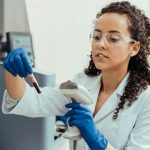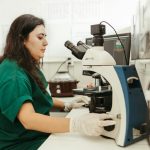New blood test detects early pancreatic cancer with 85% accuracy
A new blood test may help detect pancreatic cancer in its early stages with up to 97% accuracy, according to a recent study. This test...
Cutting nerve connections could help treat pancreatic cancer
Scientists have discovered that pancreatic cancer relies on connections to the nervous system to grow and spread. A team from the German Cancer Research...
Blood test could detect early pancreatic cancer with 97% accuracy
Pancreatic cancer is one of the deadliest cancers because it is often diagnosed too late for effective treatment. A team of researchers at Oregon...
Research shows big cause and better treatment of deadly pancreatic cancer
Pancreatic cancer is one of the deadliest types of cancer, with very few people surviving for more than five years after diagnosis. A specific...
Scientists find better treatment for deadly pancreatic cancer
Pancreatic cancer is one of the most dangerous types of cancer, and a specific form called pancreatic ductal adenocarcinoma (PDAC) is the most common...
A new breakthrough in pancreatic cancer treatment
Pancreatic cancer is one of the deadliest forms of cancer, with survival rates remaining alarmingly low. Only 12% of men and 14% of women...
Research shows big cause of pancreatic cancer and how to treat it
Pancreatic ductal adenocarcinoma (PDAC) is one of the most aggressive and deadly forms of cancer. This means it grows and spreads very quickly, making...
Scientists find a new hope for treating pancreatic cancer
Pancreatic cancer is one of the hardest types of cancer to treat. Among its different forms, pancreatic ductal adenocarcinoma (PDAC) is the most common...
What you should know about pancreatic cancer screening
Pancreatic cancer is one of the most challenging cancers to detect early and treat effectively. This type of cancer starts in the pancreas, an...
Recognizing signs of pancreatic cancer and knowing when to act
Pancreatic cancer is one of the most serious cancers, partly because it often goes unnoticed in its early stages.
The pancreas is a small organ...










